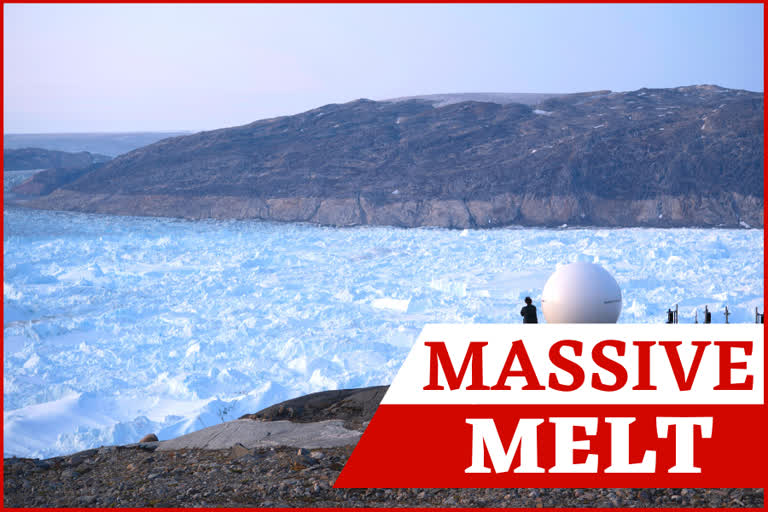Copenhagen:Greenland lost a record amount of ice during an extra warm 2019, with the melt massive enough to cover California in more than four feet (1.25 meters) of water, a new study said.
After two years when summer ice melt had been minimal, last summer shattered all records with 586 billion tons (532 billion metric tons) of ice melting, according to satellite measurements reported in a study Thursday. That's more than 140 trillion gallons (532 trillion liters) of water.
That’s far more than the yearly average loss of 259 billion tons (235 billion metric tons) since 2003 and easily surpasses the old record of 511 billion tons (464 billion metric tons) in 2012, said a study in Communications Earth & Environment. The study showed that in the 20th century, there were many years when Greenland gained ice.
“Not only is the Greenland ice sheet melting, but it’s melting at a faster and faster pace,” said study lead author Ingo Sasgen, a geoscientist at the Alfred Wegener Institute in Germany.
Read |Greenland ready to take US aid but won't accept conditions
Last year’s Greenland melt added 0.06 inches (1.5 millimeters) to global sea-level rise. That sounds like a tiny amount but in our world it’s huge, that’s astounding, said study co-author Alex Gardner, a NASA ice scientist. Add in more water from melting in other ice sheets and glaciers, along with an ocean that expands as it warms — and that translates into slowly rising sea levels, coastal flooding and other problems, he said.
While general ice melt records in Greenland go back to 1948, scientists since 2003 have had precise records on how much ice melts because NASA satellites measure the gravity of the ice sheets. That's the equivalent of putting the ice on a scale and weighing it as water flows off, Gardner said.
